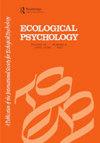最大冲刺中的时间距离:理解运动员在冲刺中的动作边界
IF 1.7
3区 心理学
Q3 PSYCHOLOGY, EXPERIMENTAL
引用次数: 0
摘要
摘要本研究考察了最大努力冲刺跑步的运动学,绘制了一个人的最大跑步速度、最大跑步加速度与这个人在一定时间内所能跑完的距离之间的关系。33名参与者被招募来完成一项简单的冲刺任务。向前跑和向后跑都被考虑。参与者的位置、速度和加速度数据通过局部定位测量系统获得。结果显示,参与者的速度-加速度曲线明显呈非线性。为了解释这些非线性模式,我们提出了一个新的短跑运动宏观模型。其次,我们考察了目标距离是否影响参与者跑步速度随时间的演变。总的来说,除了“终点线效应”外,对跑步速度没有这种影响。最后,我们研究了个体最大跑步速度和加速度的变化与他们动作边界的差异之间的关系。研究结果是在跑动接飞球时基于能力的控制的背景下讨论的。本文章由计算机程序翻译,如有差异,请以英文原文为准。
Distance over Time in a Maximal Sprint: Understanding Athletes’ Action Boundaries in Sprinting
Abstract The present study examined the kinematics of maximal effort sprint running, mapping the relations among a person’s maximal running speed, maximum running acceleration and the distance coverable in a certain amount of time by this person. Thirty-three participants were recruited to perform a simple sprint task. Both forward and backward running were considered. Participants’ position, velocity and acceleration data were obtained using a Local Positioning Measurement system. Participants’ speed-acceleration profiles turned out to be markedly non-linear. To account for these non-linear patterns, we propose a new macroscopic model on the kinematics of sprint running. Second, we examined whether target distance was of influence on the evolution of participants’ running speeds over time. Overall, no such effect on running velocity was present, except for a ‘finish-line effect’. Finally, we studied how variation in individuals’ maximum running velocities and accelerations related to differences in their action boundaries. The findings are discussed in the context of affordance-based control in running to catch fly balls.
求助全文
通过发布文献求助,成功后即可免费获取论文全文。
去求助
来源期刊

Ecological Psychology
PSYCHOLOGY, EXPERIMENTAL-
CiteScore
3.30
自引率
10.50%
发文量
8
期刊介绍:
This unique journal publishes original articles that contribute to the understanding of psychological and behavioral processes as they occur within the ecological constraints of animal-environment systems. It focuses on problems of perception, action, cognition, communication, learning, development, and evolution in all species, to the extent that those problems derive from a consideration of whole animal-environment systems, rather than animals or their environments in isolation from each other. Significant contributions may come from such diverse fields as human experimental psychology, developmental/social psychology, animal behavior, human factors, fine arts, communication, computer science, philosophy, physical education and therapy, speech and hearing, and vision research.
 求助内容:
求助内容: 应助结果提醒方式:
应助结果提醒方式:


